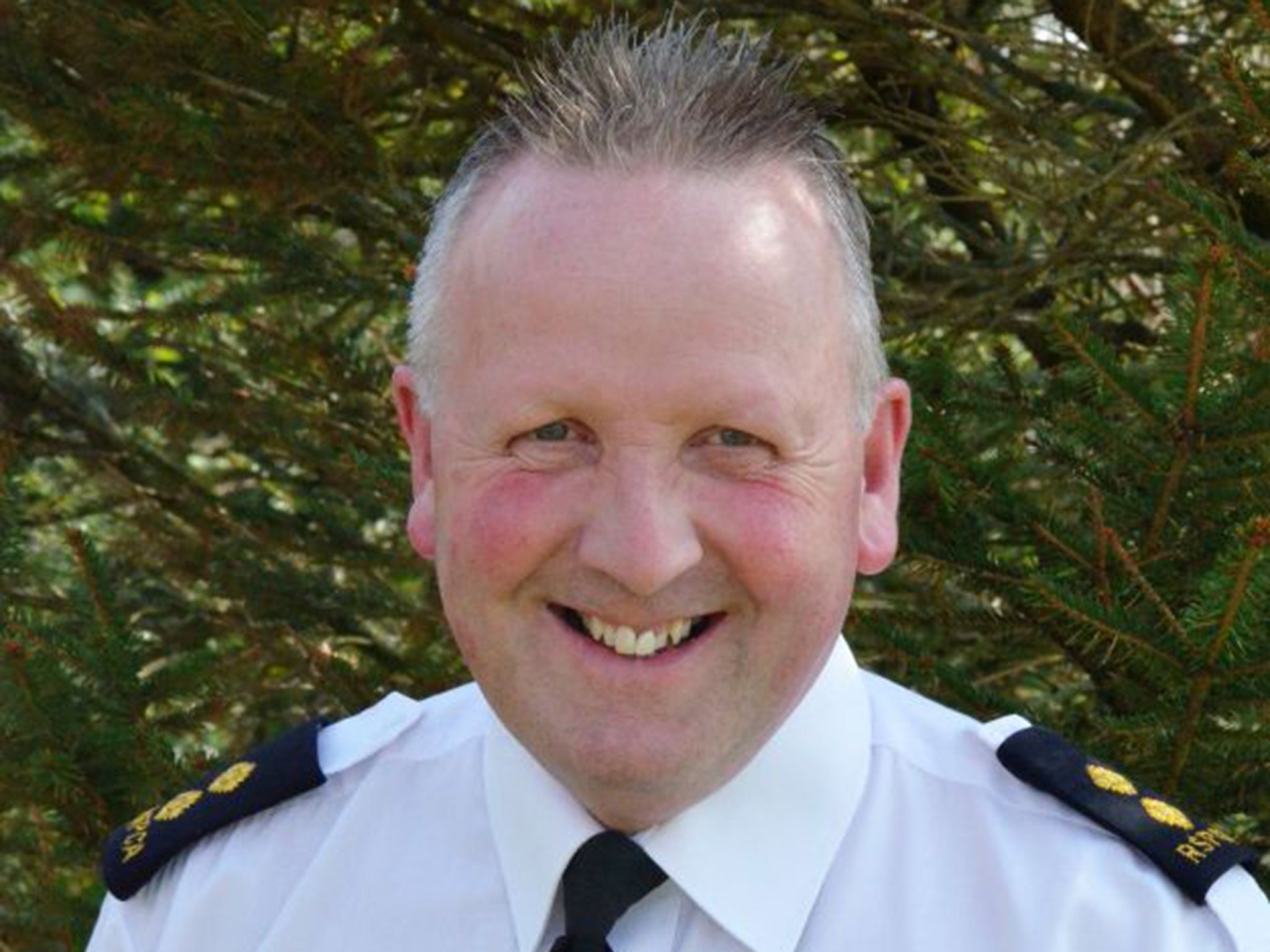An RSPCA inspector died after being swept out to sea while trying to rescue dozens of stranded birds just before Storm Imogen hit, an inquest heard.
Mike Reid went missing near Land’s End while on a rescue call to save 40 gannets that were trapped on the rocks.
But despite a major hunt launched by the RSPCA, police and coastguard, the 54-year-old has never been found.
Mr Reid, who had been with the animal charity for more than 30 years, answered the alert at Porthchapel Beach at around 2pm in February 2016.
His inquest in Truro, Cornwall, heard that no one at the RSPCA knew he had not returned after the evening call out until his wife raised the alarm the next morning.
The coroner was told Mr Reid would work independently – starting and finishing at home in Redruth, Cornwall – and would make his own risk assessments at the scene.
On the day of his disappearance, the RSPCA received a call from Caitlin Finch who reported a flock of gannets trapped on the rocks.
In a statement read out in the inquest, Ms Finch said: “I got a call from an RSPCA officer who said that he was at the look out.
“I didn’t know what he was referring to and I told him I didn’t know where he was talking about and told him he had gone too far.
“I was concerned about the weather and I remember saying to the man, ‘be careful’.
“He told me it was really windy and he had almost been blown off.”
The inquest heard that on call outs Mr Reid was supposed to press an alert on his personal data assistant that is monitored in a centralised system by the RSPCA.
He was also supposed to press a “back at base” button when he returned to his van, but neither button was pressed on the day of his disappearance.
The inquest heard how Mr Reid’s body has never been found, despite major search efforts, and nothing was heard of him after that phone call.
The day after his disappearance, part of Mr Reid’s equipment, a radio, and a few dead birds were found on a path leading down to the beach.
Mr Reid’s wife, Tracey Reid, 50, attended the inquest, and said in a statement that she had struggled to come to terms with his disappearance.
She said: “Michael worked for the RSPCA, it was a job he loved and he would regularly bring animals home for us to keep.
“I went to bed and Mike wasn’t home but I wasn’t worried, it wasn’t unusual. I assumed he was tied up with a job.”
Ms Reid said her husband would often work late, and if he returned after she went to bed he would sleep on the sofa.
But the next morning, she went down stairs and realised that her husband had not returned.
She added: “I could see the bed hadn’t been slept in and I called the RSPCA and they were reluctant to talk to me.
“After I reported him missing I drove to my friend’s house who is an RSPCA inspector and they called and found where Mike’s last job was.”
Armed with the location, Ms Reid drove to the Minack car park, where Mr Reid’s car was parked and a major search operation was underway.
She added: “I knew something was wrong.”
She was then approached by a member of the search team.
“They told us they hadn’t found any thing, I remember saying, ‘he’s gone then’. Mike was my best friend and the person I turned to for anything,” she said.
“The last year was hell, every day I wake up and wonder if I will hear any news.
“The worst part is not knowing. Some days I just want to go to sleep and wake up and find out it was a bad dream.”
Emma O’Hara, from the Health and Safety Executive, said that had monitoring been more robust the alarm could have been raised earlier.
The charity said it had since improved staff safety procedures.
She said: “In this case Mr Reid wasn’t able to set his PDA to back at base but that wasn’t picked up by the company.
“It was clear no one tried to check in with him to see where he was or how he was.
“If there was checking back at base the alarm could have been raised earlier.”
Dermot Murphy, director of the RSPCA inspectorate, said Mr Reid had attended health and safety training courses into working alone, working at height, and working near water.
He also said his wellington boots were missing from his work van, but his life jacket was still there despite RSPCA policy insisting workers wear life jackets when working near water.
He confirmed that changes have now been made to RSPCA policy.
He added: “Mike’s wellington boots were not in the van but his life jacket was, so it can be assumed he did not have a life jacket on at the time.
“Mike was hugely valued and sorely missed by all that worked with him. I would like to express my sincere condolences to the family.”
At the time of his death RSPCA bosses said Mr Reid, who had two daughters and a son, was “extremely well-known and well-liked”.
His disappearance came during Storm Imogen, which was one of the heaviest of 2016 and saw thousands of people left without power after winds reached speeds of almost 100mph.
The inquest continues and is expected to finish today.
SWNS

Join our commenting forum
Join thought-provoking conversations, follow other Independent readers and see their replies
Comments